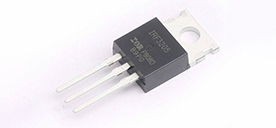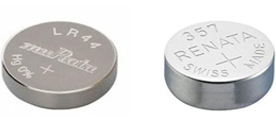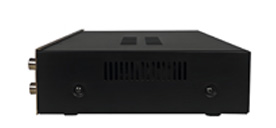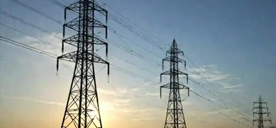Industrial control host: the intelligent engine of industrial automation
2024/2/23 9:47:17
Views:
Industrial control host is a computer equipment specially designed for the field of industrial automation and plays a key role. It undertakes the task of monitoring, controlling and managing industrial processes, collecting, processing and transmitting data in real time to assist enterprises in improving production efficiency and product quality. The following will explore in depth all aspects of industrial control hosts.
Functions of industrial control host
Monitoring and data collection: By connecting sensors, actuators and other peripheral devices, industrial control hosts can monitor and collect data in various industrial processes in real time. It can collect parameters such as temperature, pressure, flow, etc., and transmit these data to remote terminals or upper management systems for further analysis and processing.
Control and task execution: According to preset logic and algorithms, the industrial control host can control and execute various tasks. It can automatically adjust parameters, switch equipment, coordinate processes, etc. to realize automated operation of the production line.
Data processing and analysis: With powerful computing and data processing capabilities, the industrial control host can analyze and process the collected data in real time. By using algorithms and models, it can detect anomalies, optimize production processes, predict failures, etc., and provide support and optimization solutions for decision-making.
Network communication and remote monitoring: The industrial control host can communicate with other devices or upper-layer systems through the network to achieve real-time data exchange and remote monitoring. It can be combined with Internet of Things technology to realize interconnection between devices and provide more efficient industrial control and management.
Application fields of industrial control hosts
In various industrial fields, industrial control hosts have been widely used.
Manufacturing: Used to control and monitor production lines, improve production efficiency, reduce human errors, and achieve flexible manufacturing and customized production.
Energy field: widely used in power, oil, natural gas and other energy industries to monitor and control power plants, transmission lines, oil and gas pipelines and other systems to ensure safe operation and efficient energy supply.
Smart city construction: used to monitor and control transportation, water affairs, environment and other infrastructure to improve the city's management efficiency and residents' quality of life.
Logistics and warehousing: It is widely used to automate and optimize logistics processes, improve warehouse management efficiency, and achieve fast and accurate cargo tracking and distribution.
Advantages of industrial control host
In the field of industrial automation, industrial control hosts have many advantages and have become the preferred control and monitoring equipment.
Reliability and stability: Using high-quality components and specially designed hardware structure, it has good resistance to vibration and impact, and can adapt to harsh industrial environments. By using reliable operating systems and software platforms, we ensure long-term stable operation and reduce the possibility of downtime and failures.
High computing power: Equipped with a powerful processor and large-capacity memory, it can process complex algorithms and large-scale data to achieve real-time control and analysis. High computing power enables industrial control hosts to quickly respond to changing industrial processes, improving production efficiency and response speed.
Flexibility and scalability: Usually with rich interfaces and expandable slots, various types of sensors, actuators and external devices can be easily connected. This flexibility and scalability enable the industrial control host to adapt to the needs of different industrial scenarios and meet changing control requirements.
Data security and isolation: Usually a highly secure operating system and software platform are used, with strict access control and data isolation mechanisms to protect industrial control systems from network attacks, data leaks and malware, and ensure the safety of the production process. Security and reliability.
Remote management and diagnosis: supports remote monitoring and management, can be connected to the upper management system through the network, and provides real-time status information and alarm notifications. This enables engineers to diagnose, debug and maintain equipment from a distance, reducing repair time and costs.
Security considerations
The security of industrial control hosts is of paramount importance. Here are some security considerations:
Physical Security: Should be placed in a secure location to prevent access or damage by unauthorized personnel. In addition, special requirements such as dustproof, waterproof and explosion-proof also need to be considered to adapt to various industrial environments.
Access control: Access to the system should be restricted using strong passwords and authentication so that only authorized personnel can log in and perform sensitive operations to avoid illegal access and potential threats.
Data encryption: Data encryption technology should be used to protect the transmission and storage of sensitive data to prevent data tampering and malicious attacks.
Functions of industrial control host
Monitoring and data collection: By connecting sensors, actuators and other peripheral devices, industrial control hosts can monitor and collect data in various industrial processes in real time. It can collect parameters such as temperature, pressure, flow, etc., and transmit these data to remote terminals or upper management systems for further analysis and processing.
Control and task execution: According to preset logic and algorithms, the industrial control host can control and execute various tasks. It can automatically adjust parameters, switch equipment, coordinate processes, etc. to realize automated operation of the production line.
Data processing and analysis: With powerful computing and data processing capabilities, the industrial control host can analyze and process the collected data in real time. By using algorithms and models, it can detect anomalies, optimize production processes, predict failures, etc., and provide support and optimization solutions for decision-making.
Network communication and remote monitoring: The industrial control host can communicate with other devices or upper-layer systems through the network to achieve real-time data exchange and remote monitoring. It can be combined with Internet of Things technology to realize interconnection between devices and provide more efficient industrial control and management.
Application fields of industrial control hosts
In various industrial fields, industrial control hosts have been widely used.
Manufacturing: Used to control and monitor production lines, improve production efficiency, reduce human errors, and achieve flexible manufacturing and customized production.
Energy field: widely used in power, oil, natural gas and other energy industries to monitor and control power plants, transmission lines, oil and gas pipelines and other systems to ensure safe operation and efficient energy supply.
Smart city construction: used to monitor and control transportation, water affairs, environment and other infrastructure to improve the city's management efficiency and residents' quality of life.
Logistics and warehousing: It is widely used to automate and optimize logistics processes, improve warehouse management efficiency, and achieve fast and accurate cargo tracking and distribution.
Advantages of industrial control host
In the field of industrial automation, industrial control hosts have many advantages and have become the preferred control and monitoring equipment.
Reliability and stability: Using high-quality components and specially designed hardware structure, it has good resistance to vibration and impact, and can adapt to harsh industrial environments. By using reliable operating systems and software platforms, we ensure long-term stable operation and reduce the possibility of downtime and failures.
High computing power: Equipped with a powerful processor and large-capacity memory, it can process complex algorithms and large-scale data to achieve real-time control and analysis. High computing power enables industrial control hosts to quickly respond to changing industrial processes, improving production efficiency and response speed.
Flexibility and scalability: Usually with rich interfaces and expandable slots, various types of sensors, actuators and external devices can be easily connected. This flexibility and scalability enable the industrial control host to adapt to the needs of different industrial scenarios and meet changing control requirements.
Data security and isolation: Usually a highly secure operating system and software platform are used, with strict access control and data isolation mechanisms to protect industrial control systems from network attacks, data leaks and malware, and ensure the safety of the production process. Security and reliability.
Remote management and diagnosis: supports remote monitoring and management, can be connected to the upper management system through the network, and provides real-time status information and alarm notifications. This enables engineers to diagnose, debug and maintain equipment from a distance, reducing repair time and costs.
Security considerations
The security of industrial control hosts is of paramount importance. Here are some security considerations:
Physical Security: Should be placed in a secure location to prevent access or damage by unauthorized personnel. In addition, special requirements such as dustproof, waterproof and explosion-proof also need to be considered to adapt to various industrial environments.
Access control: Access to the system should be restricted using strong passwords and authentication so that only authorized personnel can log in and perform sensitive operations to avoid illegal access and potential threats.
Data encryption: Data encryption technology should be used to protect the transmission and storage of sensitive data to prevent data tampering and malicious attacks.
Related Information
-
-
Phone
+86 135 3401 3447 -
Whatsapp





